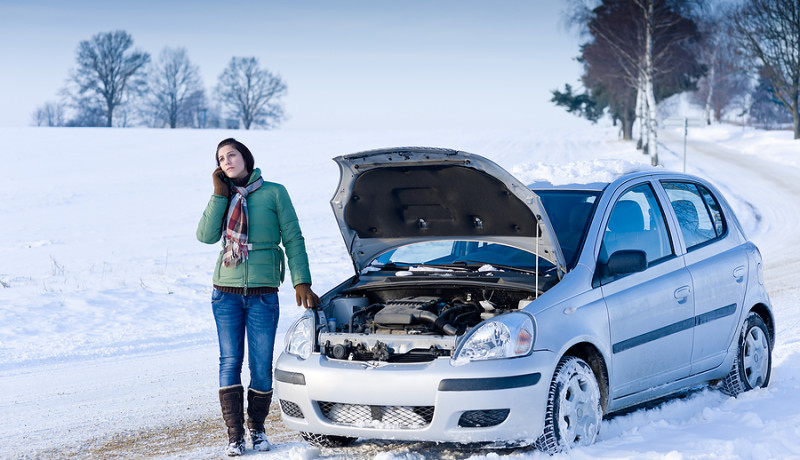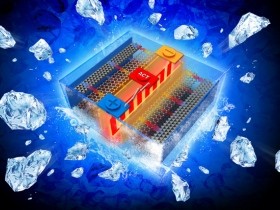Self-heating Li-Ion battery
February 03, 2016
on
on

Even people with the faintest knowledge of things electrical will confirm that batteries do not perform well at subzero temperatures. This may not be an issue for phones and laptops, but is a huge barrier for electric vehicles, drones and outdoor robots. Researchers at Penn State University and EC Power, State College have developed a lithium-ion battery that self heats if the temperature is below 0°C, which will help relieve winter 'range anxiety' for electric vehicle owners.
Conventional batteries at below freezing temperatures suffer severe power loss, which leads to slow charging in cold weather, restricted regenerative breaking and reduction of vehicle cruise range by as much as 40%, the researchers pointed out in the journal Nature. The problems require larger and more expensive battery packs to compensate for the cold sapping off energy.
The all-climate battery under development is said to weigh only 1.5% more and cost only 0.04% of the base battery. The researchers also designed the battery to go from –20 to 0 degrees C within 20 seconds and from –30 to 0 degrees C in 30 seconds while consuming 3.8% and 5.5% respectively of the cell's capacity — and that’s far less than the 40% loss in conventional lithium-ion batteries.

The all-climate battery uses a nickel foil of 50-micrometer thickness with one end attached to the negative terminal and the other extending outside the cell to create a third terminal. A temperature sensor attached to a switch causes electrons to flow through the nickel foil to complete the circuit. This rapidly heats up the nickel foil through resistance heating and warms the inside of the battery. Once the battery is at 0 degrees C, the switch turns off and the electric current flows in the normal manner. Good for EVs, sure, but also good enough to give the young lady a jump start, or crank my Chevvy V8 Big Block over?
Conventional batteries at below freezing temperatures suffer severe power loss, which leads to slow charging in cold weather, restricted regenerative breaking and reduction of vehicle cruise range by as much as 40%, the researchers pointed out in the journal Nature. The problems require larger and more expensive battery packs to compensate for the cold sapping off energy.
The all-climate battery under development is said to weigh only 1.5% more and cost only 0.04% of the base battery. The researchers also designed the battery to go from –20 to 0 degrees C within 20 seconds and from –30 to 0 degrees C in 30 seconds while consuming 3.8% and 5.5% respectively of the cell's capacity — and that’s far less than the 40% loss in conventional lithium-ion batteries.

The all-climate battery uses a nickel foil of 50-micrometer thickness with one end attached to the negative terminal and the other extending outside the cell to create a third terminal. A temperature sensor attached to a switch causes electrons to flow through the nickel foil to complete the circuit. This rapidly heats up the nickel foil through resistance heating and warms the inside of the battery. Once the battery is at 0 degrees C, the switch turns off and the electric current flows in the normal manner. Good for EVs, sure, but also good enough to give the young lady a jump start, or crank my Chevvy V8 Big Block over?
Read full article
Hide full article


Discussion (0 comments)